The sellouts are tremendously talented at coming up with clever naming. Who could be opposed to citizens uniting or a foundation dedicated to our heritage? Likewise, who among us dare say we oppose resilient forests? What sorry SOB could possibly be against a bill that claims to protect our woodlands, a bill with that pluck and hardiness, that quintessential American tenacity baked right into the label — the Resilient Federal Forests Act of 2017, AKA H.R.2936, 115th Congress?
Me. I’m the sorry SOB opposed to it. And you should be as well.
I’ve lost count of the foxes in this administration watching over every precious henhouse in our government. Hell’s bells, we’ve got a former petroleum company CEO as our ambassador to the entire world. Is there really any doubt that BIG _________ (fill in the blank) is running this country? This bill emphasizes that fact.
The Resilient Federal Forests Act was written by Congressman Bruce Westerman (R - AR), a member of the delegation from my state. Westerman, a Yale graduate who earned a masters degree in forestry, is trying to gift wrap and hand over the woods—our woods—to the timber industry. I can’t help but wonder how Aldo Leopold would feel about this proposed legislation coming from a fellow Yale alum. The bill’s contents rely on the premise that the timber industry knows how to best manage our forests and, given such, it seeks to rip away any oversight of the timber industry outside of the industry itself.

I encourage you to look for yourself, as it’s all spelled out in plain English right in the bill. Or, visit Andy Kerr over on his incredibly informative public land blog, for his thoughtful analysis and breakdown of H.R. 2936.
From Kerr:
The Westerman bill would legislate horrifically harmful public forest policy into law. Among its many sins, the Westerman bill would
- gut the National Environmental Policy Act by giving the Forest Service and the Bureau of Land Management (BLM) essentially a blank check to just start logging in many places for no reason other than getting out the cut;
- gut the Endangered Species Act by letting the Forest Service and the BLM—not the Fish and Wildlife Service or the National Marine Fisheries Service—judge whether federal logging will harm threatened and endangered species;
- gut the Equal Access to Justice Act so citizens and conservation organizations won’t get their costs reimbursed by the federal government for holding the federal government accountable in federal court to follow its own laws (the timber industry could generally still recover fees and costs);
- gut the Roadless Area Conservation Rule to allow wholesale logging in national forest roadless areas;
- gut the Administrative Procedure Act by allowing the federal forest agencies to avoid judicial review for up to 230 lawsuits each year;
- gut judicial review by making Lady Justice put not just her thumb but her butt on the side of the scale favoring Big Timber;
- make it nearly impossible for federal forest agencies to decommission environmentally harmful and fiscally challenging roads;
- gut the National Historic Preservation Act by short-circuiting procedures designed to protect historical resources;
- gut the Secure Rural Schools and Community Self-Determination Act by converting it to a Secure Timber Industry and Community Oppression Act;
- gut the Fair Labor Standards Act to allow children to work in the logging industry;
- gut the National Forest Management Act and the Federal Land Policy and Management Act by allowing national forest and public lands to be transferred to tribal control; and
- essentially require salvage logging after any disturbance regardless of any ecosystem benefits.
I could go on. And I will.
Most particular to the Pacific Northwest, the bill would abolish the survey-and-manage requirement of the Northwest Forest Plan and repeal the “eastside screens” that have protected large trees on eastside (non-spotted owl) Oregon and Washington national forests.
The Westerman bill would effectively transfer all road rights-of-way on BLM lands in western Oregon to private timber interests.
The Westerman bill would statutorily require that 500 million board feet of logs be sold each year off of the O&C lands. (The 2016 BLM resource management plan says a maximum of 278 million board feet annually could be logged and that’s only if you don’t mind older forest being clear-cut, scenic views being marred, watersheds being fouled, and wildlife being displaced).
Let’s focus in, in particular, on the part of Sec. 913 that says
All of the public land managed by the Bureau of Land Management in the Northwest District, Roseburg District, Coos Bay District, Medford District, and the Klamath Resource Area of the Lakeview District in the State of Oregon shall hereafter be managed pursuant to title I of the Act of August 28, 1937 (43 U.S.C. 1181a through 1181e). [emphasis added]
These fifty-seven words would
- exalt the Oregon and California (O&C) Lands Act of 1937 above any and all statutes that came before 1937 (for example, the Antiquities Act of 1906) or after 1937 (such as the Clean Water Act and the Endangered Species Act);
- convert 400,000 acres of BLM public domain lands in western Oregon—federal public lands that were never granted away or taken back for noncompliance with the terms of the grant—to be O&C lands and managed exclusively for timber production;
- effectively override the two presidential proclamations—issued under authority granted by Congress to the president in the Antiquities Act—that established (2000) and expanded (2017) the Cascade-Siskiyou National Monument;
- effectively disestablish the portion of the Wild Rogue Wilderness on BLM land, the Table Rock Wilderness, and the Soda Mountain Wilderness; and
- effectively disestablish the portions of the Sandy, Rogue, Salmon, North Umpqua and Elkhorn Creek wild and scenic rivers on BLM lands, and the Quartzville Creek Wild and Scenic River.
This is a public lands issue, and the consequences are just as dire as public land sell off with the same results — outdoors folks and nature lovers lose. Corporate interests win.
This bill already passed through the house and will be debated on the senate floor in the coming weeks. Call your senators. Tell them oversight is needed, that placing our forests in hands waiting to wring every last cent out of them is a bad move.
Excerpts reprinted with permission.






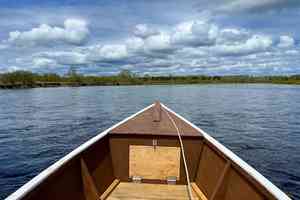




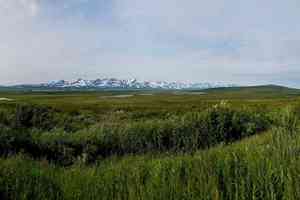

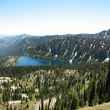





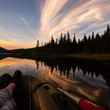




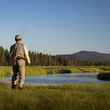
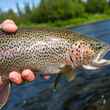
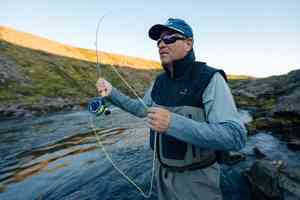




Comments
Bibi replied on Permalink
I am beyond saddened by these moves to take down the pillars of our national economic sustainability. The states have little to no accountability as they turn these lands and waters into for-profit driven business opportunities. What do we tell the next generations, that it was too costly? Studies have shown that the states cannot afford to maintain these lands. They will sell them off to private owners. These lands belong to the American people. For over 100 years, men and women of the various agencies have sacrificed their lives in order to defend the woods and waters from encroachment. Keep public lands in public hands!!!!!
Thomas Doyle replied on Permalink
This is just plain nuts. I agree that there needs to be some logging to help control the forest fire potential. In also agree that in areas where there has been a forest fire claim wood that is useable.
Uncontrolled logging will lead to greater soil erosion. The soil will either end up in the rivers and reducing areas for spawning or just blowing away. Water temperatures will go up do to greater exposure to the sun. The uncontrolled logging results in more floods because there is nothing to control the rains and snow melts.
It seems that the guys in Washington are hell bent on grabbing everything they can get their hands even if it if it requires raping and pillaging.
The other issue looming is the mining of the Grand Canyon for Uranium. Where will it stop? How do we stop these actions? It seems that writing Congress doesn't help. So far the only responses that I get is that they are supporting the Presidents agenda.
joseph perhauch replied on Permalink
Just one more, but one very clear, indication of what the priorities of this administration are. Screw the people, destroy the environment, kill off endangered species, all so a very few can make a profit. People need to get up and work together to stop this, and do it soon, before the damage is too great to repair.
Pages